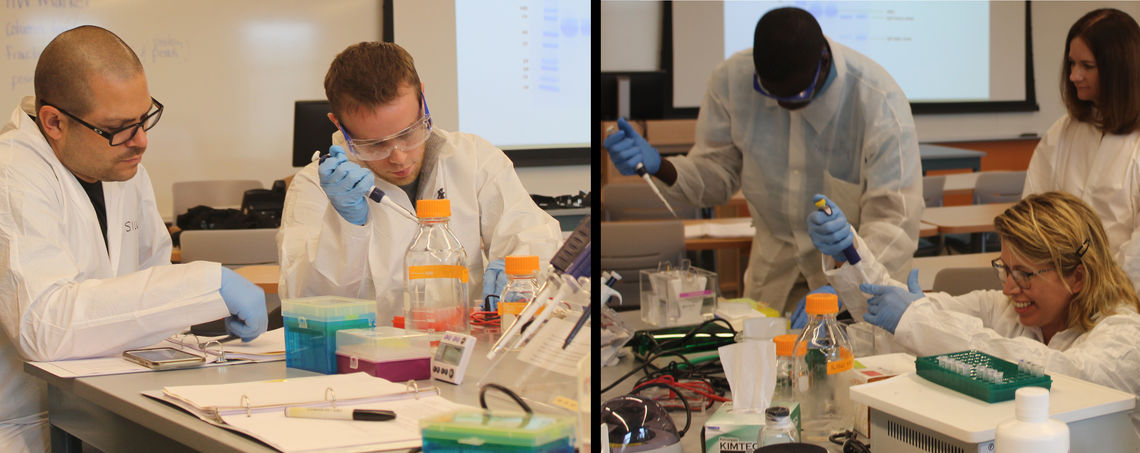miniBIOMAN 2019: Quality in Biomanufacturing
As described in the Quality Assurance unit of the Introduction to Biomanufacturing textbook, “The primary customers for biopharmaceuticals include medical practitioners, regulators, and the patients who receive the biopharmaceutical products. All are concerned with the safety and effectiveness (efficacy) of the product.” With this in mind, Quality Assurance (QA) is the ability to manufacture a product with a predetermined set of criteria that insure the safety, efficacy and potency of the product, for every vial produced. Within the QA department are the Quality Control (QC) units, which perform biochemical and microbiological tests to ensure product quality throughout the manufacturing process. Measuring and testing functions are performed regularly during the process, including sampling final and packaged vials of product before it is shipped to the physician’s office, hospital or pharmacy.
In this workshop, participants will be introduced to experiments and techniques used in the biopharmaceutical industry to prevent microbial contamination of products, and biochemical assays that test for identity, purity and potency of the drug substance and product. Microbiological QC activities will include endotoxin testing, molecular and biochemical approaches to microbe detection and identification, and environmental monitoring. Biochemical QC techniques will focus on monoclonal antibody drug substance analysis and include aggregate testing by HPLC analysis, identity and concentration determination by ELISA and purity determination by SDS PAGE. In both the microbiological and biochemical sessions, techniques ranging from basic activities through advanced laboratory exercises will be performed in order to accommodate all levels of course and program development of the participating instructors.
QA activities will include an easy to implement popcorn GMP lab exercise, an equipment operational qualification exercise, online classroom activities, case studies, and industry guest speakers.
At the conclusion of the mini-BIOMAN, participants will have a comprehensive, ready-to-insert curriculum module to utilize in their own classrooms. Curricular materials include PowerPoint slides, links to relevant resources, and all standard operating procedures. Breakfast and lunch will be provided each day of the conference, and transportation to off-site venues is included.
Participation in all three days of the workshop is required.
- * Travel stipends are available for out-of-town participants. *
